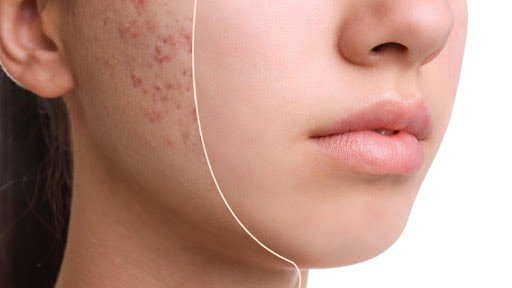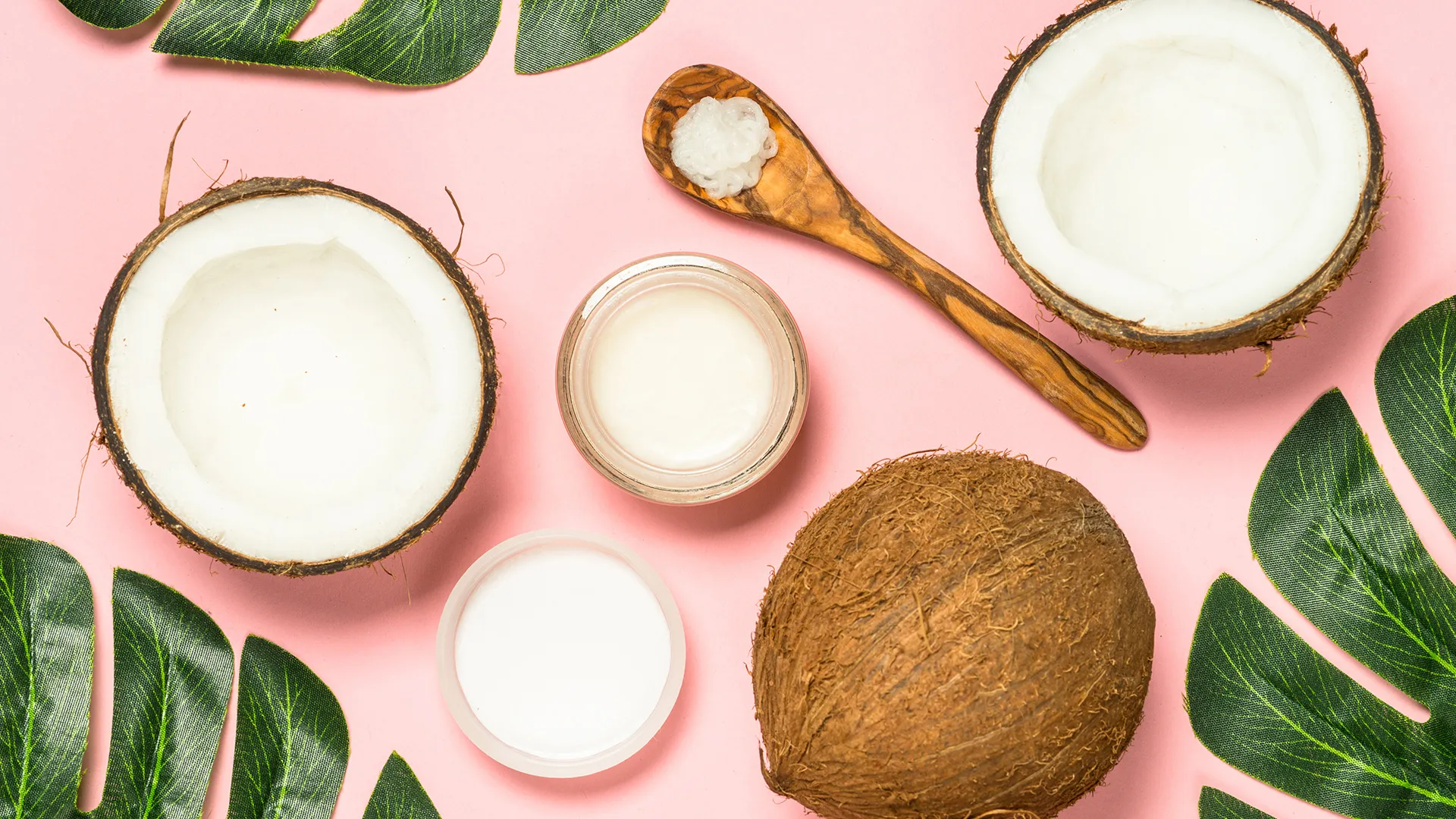Dry skin can be uncomfortable, leading to flakiness, itching, and even cracks that can be painful. The search for the best moisturizer can be overwhelming, with countless options available. However, natural moisturizers offer a healthier alternative to many commercial products laden with synthetic chemicals. These natural ingredients are gentle on sensitive skin, packed with essential nutrients, and often provide better hydration than their synthetic counterparts.
Whether you’re dealing with seasonal dryness or chronic dry skin, incorporating natural moisturizers into your skincare routine can make a world of difference. Using ingredients from nature not only nourishes your skin but also protects it from environmental stressors, helping you maintain a radiant, glowing complexion year-round.
In this guide, we’ll dive deep into the best natural moisturizers for dry skin, discussing their benefits and how they can transform your skincare routine. From hydrating oils to soothing butters, you’ll find options that are both effective and eco-friendly.
1. Shea Butter: The Ultimate Hydrating Powerhouse
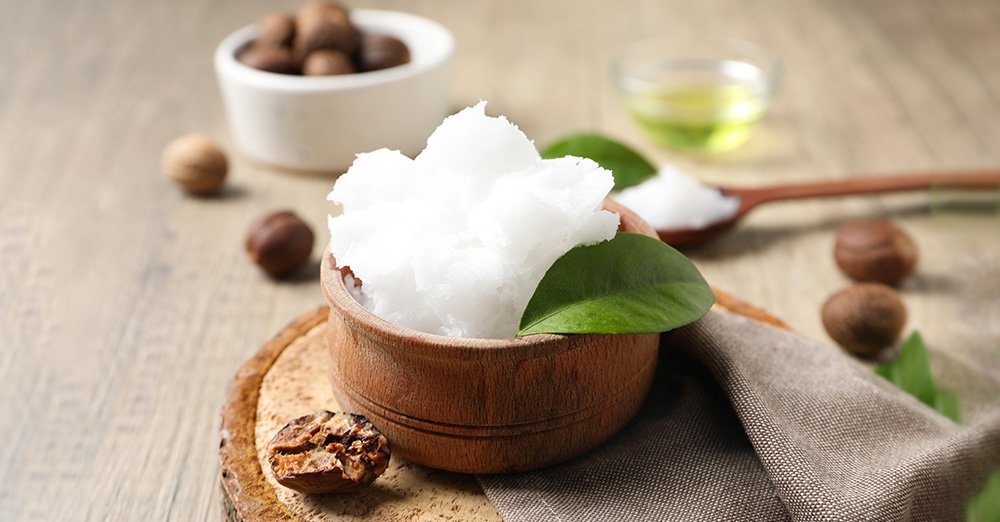
What is Shea Butter?
Shea butter is a rich, creamy fat extracted from the nuts of the African shea tree. Known for its luxurious texture, this natural moisturizer has been used for centuries to treat dry skin and restore elasticity.
Benefits of Shea Butter for Dry Skin
- Deeply Moisturizing: Shea butter is high in fatty acids and vitamins, which make it an excellent emollient. It penetrates deep into the skin, providing long-lasting hydration without clogging pores.
- Soothing and Healing: With anti-inflammatory properties, shea butter is ideal for irritated skin. It helps soothe redness, itching, and minor irritations caused by dryness.
- Rich in Antioxidants: Shea butter contains vitamins A and E, which are known for their antioxidant benefits. These nutrients help protect your skin from free radicals and environmental damage.
How to Use Shea Butter in Your Routine
To get the most out of shea butter, apply it directly after showering when your skin is still damp. The butter will lock in moisture, leaving your skin soft and supple throughout the day.
2. Coconut Oil: Nature’s Multi-Tasking Moisturizer
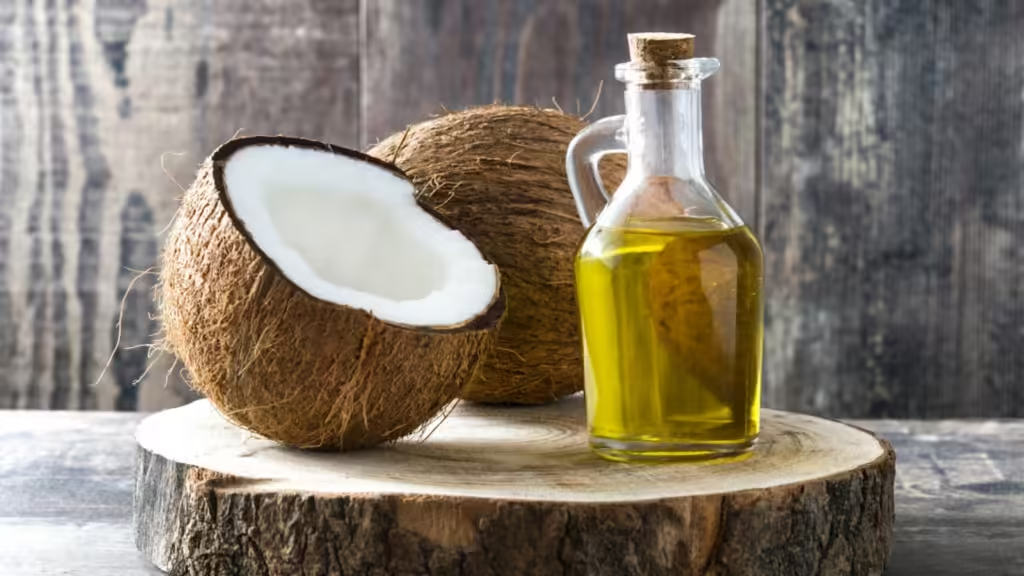
Why Coconut Oil is Perfect for Dry Skin
Coconut oil is a well-known natural moisturizer that has gained immense popularity in skincare. Extracted from the meat of mature coconuts, it contains medium-chain fatty acids that are perfect for nourishing and moisturizing the skin.
Benefits of Coconut Oil for Skin Hydration
- Hydrating: Coconut oil forms a protective barrier over the skin, preventing water loss and maintaining hydration.
- Anti-Bacterial: Thanks to its lauric acid content, coconut oil can help reduce skin infections and prevent acne in dry skin, which can be prone to inflammation.
- Anti-Aging: Coconut oil promotes the production of collagen, helping to minimize the appearance of fine lines and wrinkles that are often exacerbated by dry skin.
Application Tips
Massage a small amount of coconut oil onto your skin before bed. This allows it to absorb overnight, delivering maximum hydration by morning. For extremely dry areas, like elbows or feet, use a thicker layer for intense moisturization.
3. Aloe Vera: The Cooling Hydrator
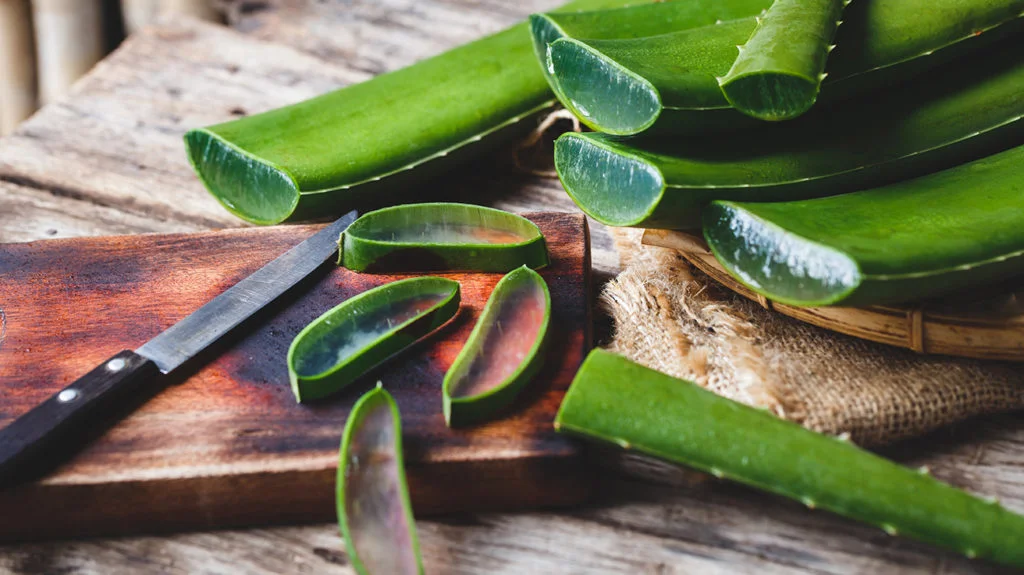
Aloe Vera’s Unique Properties
Aloe vera is often associated with soothing sunburns, but its hydrating abilities make it an excellent choice for dry skin, too. The gel extracted from the aloe plant is packed with vitamins, minerals, and amino acids, making it a highly versatile moisturizer.
Benefits for Dry Skin
- Cooling and Soothing: Aloe vera has a cooling effect, which can be especially beneficial for irritated or inflamed dry skin.
- Hydrating Without Grease: Unlike many oils, aloe vera absorbs quickly and doesn’t leave a greasy residue. This makes it ideal for those who prefer a light moisturizer.
- Promotes Skin Healing: Aloe vera’s ability to promote wound healing makes it a great choice for dry, cracked skin that needs repair.
How to Use Aloe Vera Gel
You can use pure aloe vera gel directly on your skin or mix it with another natural oil like jojoba or coconut oil for added hydration. Apply the mixture to dry areas after cleansing your face or body for the best results.
4. Jojoba Oil: The Skin Balancer
What Makes Jojoba Oil Special?
Jojoba oil is unique because it closely resembles the skin’s natural sebum, making it an ideal moisturizer for all skin types, especially dry skin. Extracted from the seeds of the jojoba plant, this oil is light and easily absorbed.
Why Jojoba Oil is Ideal for Dry Skin
- Balances Oil Production: Jojoba oil tricks the skin into thinking it has produced enough oil, which can help reduce excessive dryness and maintain a balanced complexion.
- Non-Comedogenic: It won’t clog pores, making it a perfect option for dry skin that’s also prone to breakouts.
- Rich in Nutrients: Jojoba oil is packed with vitamins E and B-complex, which help repair damaged skin and improve its overall texture.
Best Practices for Using Jojoba Oil
Apply jojoba oil after cleansing your face. Use a few drops, massaging it gently into your skin. You can also add it to your favorite moisturizer for an extra hydration boost.
5. Avocado Oil: The Vitamin-Rich Moisturizer
The Nutrient-Dense Composition of Avocado Oil
Avocado oil is extracted from the pulp of the avocado fruit, making it a nutrient-rich option for dry skin. Loaded with fatty acids, antioxidants, and vitamins, it’s one of the best natural oils for intense hydration.
Key Benefits for Dry Skin
- Deep Hydration: Avocado oil’s high content of oleic acid helps to retain moisture, making it ideal for extremely dry and cracked skin.
- Rich in Vitamin E: This antioxidant-rich oil not only moisturizes but also helps reduce inflammation, which can be beneficial for dry, sensitive skin.
- Promotes Collagen Production: Avocado oil promotes collagen synthesis, helping to maintain skin elasticity and firmness.
How to Incorporate Avocado Oil into Your Skincare Routine
You can use avocado oil on its own or mix it with other oils like rosehip or almond oil. Massage a small amount onto your skin daily, focusing on areas that are prone to dryness.
6. Honey: Nature’s Humectant
Why Honey is a Super Moisturizer
Honey isn’t just for sweetening your tea—it’s an incredible natural moisturizer for dry skin. As a humectant, honey draws moisture from the air into your skin, keeping it hydrated throughout the day.
Benefits of Honey for Dry Skin
- Hydration Boost: Honey helps maintain the moisture balance in your skin, making it soft and supple.
- Healing Properties: Honey is naturally antibacterial and has wound-healing properties, making it perfect for dry, cracked skin.
- Gentle Exfoliation: The enzymes in honey gently exfoliate the skin, removing dead cells and allowing new, hydrated skin to surface.
How to Use Honey in Your Skincare Routine
For an effective moisturizing mask, mix raw honey with a few drops of olive oil. Apply the mixture to your face and let it sit for 15-20 minutes before rinsing off with warm water. Your skin will feel soft and deeply hydrated.
Conclusion
Natural moisturizers are a gentle, effective way to treat dry skin without exposing your body to harsh chemicals. Whether you choose the creamy richness of shea butter, the lightweight hydration of aloe vera, or the nutrient-packed properties of avocado oil, these natural ingredients are sure to restore moisture and improve the overall health of your skin.
Incorporating these natural moisturizers into your daily skincare routine can help you maintain a hydrated, glowing complexion year-round. With consistent use, you’ll notice reduced dryness, fewer irritations, and softer, more youthful skin.






